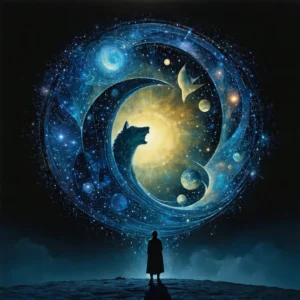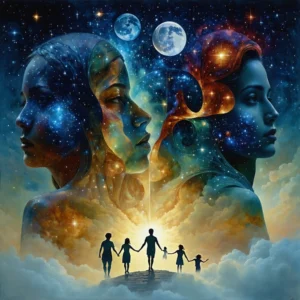
Introduction
The stars have long captivated human imagination, and many wonder about the connection between zodiac profiles and personality traits. Researchers from the University of Manchester recently set out to explore this intriguing possibility. In their study, they examined whether astrological sign descriptions truly match the complexities of human character. Moreover, they integrated rigorous scientific methods with traditional beliefs, thereby sparking both excitement and skepticism. Furthermore, supporters of astrology cite personal experiences that seem to confirm these astrological profiles, while critics emphasize the absence of conclusive evidence. Consequently, this debate continues to inspire curiosity and respectful controversy.
Historical Perspectives and Cultural Significance
Historically, civilizations from Babylonia to Greece integrated celestial observations with daily life. In earlier times, astrology served as a guide for personal and political decisions. Additionally, ancient texts and traditions reinforced the connection between cosmic events and human destinies. For example, scholars have noted that many cultures used zodiac signs as symbolic anchors for personality insights. Therefore, current efforts continue to investigate whether lingering superstitions carry a kernel of truth. In short, both historical tradition and contemporary interest have paved the way for modern scientific inquiry into astrological correlations.
Scientific Inquiry at the University of Manchester
The Manchester researchers designed their investigation meticulously. Firstly, they formulated hypotheses regarding possible correlations between zodiac signs and personality traits. Subsequently, they recruited diverse groups and administered validated personality questionnaires alongside astrological profiles. Moreover, they applied statistical analyses to search for significant patterns. Their workflow included:
- Survey collection and digital data archiving
- Controlled study sessions to eliminate bias
- Application of both qualitative and quantitative evaluation methods
Additionally, they compared the resultant data with established psychological models. As a result, while the findings produced intriguing trends, the overall evidence did not support a definitive link between zodiac indicators and personality structures.
Ambiguity in the Findings
The study produced ambiguous results that both intrigue and puzzle. Although a fraction of participants found comfort in the traditional astrological descriptions, the scientific analysis revealed no concrete correlation. For instance, researchers detected minor overlaps in character attributes; however, these overlaps occurred sporadically, lacking consistency across larger samples. Consequently, numerous experts argue that the study’s ambiguous results enforce the notion that personal perceptions often color our interpretations of astrological predictions. In addition, many people remain drawn to astrology because it offers a framework that simplifies the complexity of human nature, even when empirical validation remains elusive.
Psychological and Social Influences
The study further explored the impact of cultural and psychological factors on the acceptance of zodiac-based character assessments. Many individuals tend to view astrological descriptions as affirmations of their self-identity. Moreover, confirmation bias plays a crucial role; people naturally embrace information that aligns with their self-perceived traits while dismissing conflicting evidence. In parallel, social interactions and media representations continue to reinforce stereotypical zodiac imagery. Interestingly, participants often felt that the horoscopes provided them solace or a sense of belonging, thus blurring the line between objective analysis and subjective experience. Therefore, the interplay between social validation and personal belief remains a key factor in the persistent popularity of astrology.
Analyzing Astrological Descriptions
Many participants reported that their zodiac signs resonated with their own life experiences. In this regard, the language of astrological descriptions frequently contains broad and inclusive terms. For example, phrases such as “dynamic,” “intuitive,” and “passionate” appear in many sign profiles. Accordingly, the perceived accuracy might stem from such generalizations that apply to a wide range of individuals. Additionally, nuanced language in horoscopes allows for flexible self-interpretation. To illustrate, consider the following numbered list of common personality traits associated with specific zodiac signs:
- Aries – Courage and leadership
- Taurus – Stability and determination
- Gemini – Adaptability and communication
- Cancer – Sensitivity and nurturance
Thus, while these generalizations provide comfort, they often lack the specificity needed for rigorous scientific validation.
Public Perception and Personal Anecdotes
Interestingly, millions continue to consult daily horoscopes, and many share stories supporting the idea that their zodiac sign captures their essence. Furthermore, anecdotes circulated among friends and family often emphasize uncanny similarities between one’s personality and astrological predictions. In many cases, such narratives propagate through social media and personal blogs. Equally important, these personal accounts influence public perception, reinforcing the belief in a cosmic connection. Additionally, media outlets emphasize celebratory and relatable aspects of zodiac descriptions. Therefore, the cultural momentum behind astrology grows, regardless of inconclusive scientific findings. This phenomenon illustrates how narrative and social validation can offer an alternative sense of truth, irrespective of empirical data.
Examining the Evidence through a Critical Lens
Critics of astrological research argue that statistical anomalies and methodological flaws often undermine the study of zodiac-personality correlations. In contrast, proponents assert that the subjective nature of personality makes it difficult to capture fully through quantitative measures. Moreover, the research emphasizes that personal interpretation and cultural context play significant roles in shaping one’s self-view. To enhance clarity, the researchers outlined several potential areas for further inquiry:
- Improving the granularity of personality assessments
- Exploring cultural differences in zodiac interpretation
- Integrating neuroscientific methods to examine belief systems
Additionally, future research could benefit from multidisciplinary collaborations between psychologists, sociologists, and astrological experts. Ultimately, while the present findings remain contentious, they encourage a balanced perspective that respects both scientific rigor and personal experience.
Zodiac Signs and Personality Traits: A Comparative Table
Below is a table that summarizes common zodiac signs alongside their frequently associated personality traits:
| Zodiac Sign | Common Traits |
|---|---|
| Aries | Energetic, Assertive, Courageous |
| Taurus | Reliable, Persistent, Sensual |
| Gemini | Adaptable, Communicative, Intellectual |
| Cancer | Intuitive, Caring, Protective |
| Leo | Confident, Charismatic, Generous |
| Virgo | Analytical, Practical, Meticulous |
This comparative overview complements statistical analyses while also highlighting the inherent variability of human nature. Consequently, readers can appreciate the diverse interpretations that arise from both scientific inquiry and traditional practices.
Reflections and Future Directions
As discussions evolve, it becomes clear that the bridge between psychology and astrology remains complex and multifaceted. Researchers acknowledge that future studies must consider more refined methodologies to address potential confounds. Meanwhile, cultural narratives and personal testimonies continue to fuel lively debates. Additionally, integrating modern technology such as machine learning may help uncover subtle patterns that current methods cannot detect. In conclusion, although the empirical evidence for a solid zodiac-personality link remains limited, the continuing fascination with cosmic symbolism offers valuable insights into human thought and social behavior. Thus, the dialogue endures, encouraging further exploration and spirited professional debate.





